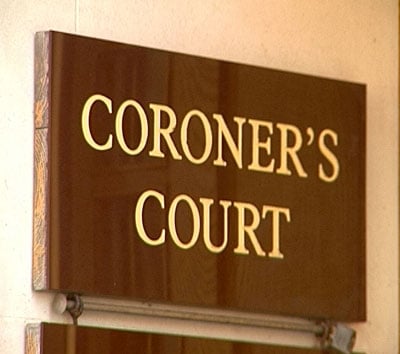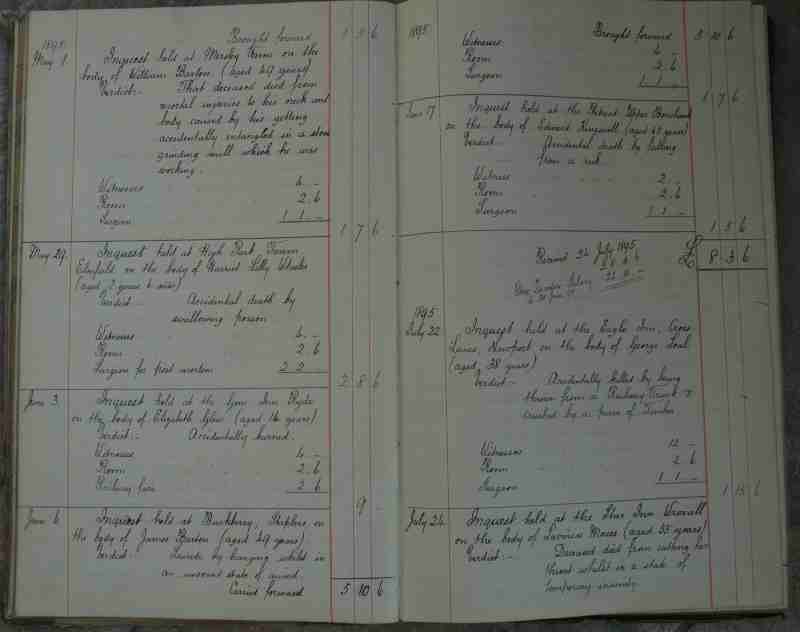Inquests
| Inquests are held when the cause of death was not due to natural causes or there is a matter of public interest which needs to be looked into. If a relative thinks an Inquest should be held, contact should be made to the Coroner as soon as possible after the death. An Inquest is not a trial. It is a limited inquiry into the facts surrounding a death. It is not the job of the Coroner to blame anyone for the death, as a trial would do, but to record the findings of certain facts about the death. These are: |  |
- Who the dead person was
- How, when and where that person came by his or her death.
Inquests are held in public and there is no restriction on the number of relatives/interested parties attending. On the Island, they are held in the Court building in Quay Street, Newport and the Press are usually in attendance. Others present at an Inquest could include: Emergency services, Doctors, Lawyers, Local Authorities, Specialists, Translators, members of the public etc. Usually an Inquest will be opened within 1 week of the death occurring in order for cremation or burial certificates to be issued and the body released for the funeral. Interim death certificates will also be issued for legal dealing that would normally require the death certificate (these cannot be issued until after the full Inquest is completed). The Inquest would then be adjourned to a future date – possibly within 6 months depending on the severity of the case. Inquests can take from 1- 4 hours on average but a few have taken up to a week.
Coroner’s staff may need to interview someone about the death and possibly take a statement. This will be done at a time and place convenient to the person concerned. A copy will be provided on request. Witnesses will be given reasonable notice to attend an
Inquest and will be entitled to reasonable expenses. Sometime expenses can be paid in advance but you would need to contact the Coroner’s Office for confirmation.
Giving Evidence
If you are warned to attend an Inquest you must do so or risk a fine or imprisonment. If there is a legitimate reason why you cannot attend e.g. bad health or holiday arrangements, then you should make contact a.s.a.p. with the Coroner’s Office who may be able to release you from attending.
The Coroner decides which witnesses to call but the family of the deceased can suggest to the Coroner with reasons which witnesses they would like to attend, including any particular specialist they feel may be necessary.
The Coroner examines witnesses first after they have been sworn in. Witnesses can then be examined by any other interested party with the consent of the Coroner, family members going first.
Legal representation is an option for bereaved relatives but they would have to pay a solicitor themselves as legal aid is not usually available. Agencies such as MIND, Inquest and AVMA can give advice on obtaining free legal advice and should be contacted directly. It may be important to have a lawyer to represent the family if the death was caused by a road accident, or an accident at work, or other circumstances which could lead to a claim for compensation.
Certain cases will require the attendance of a Jury and a random group of people (between 7-11) would be selected by computer from the Isle of Wight electoral role. Expenses will be reimbursed upon request to the Coroner.
For jurors, the Coroner will:
- Send a leaflet explaining the duties of a juror at an inquest
- Provide an indication in advance of how long the jury service is expected to last
Isle of Wight Coroner’s Inquest Service
This local service is available to help you through the process of an inquest. Trained Volunteers can help by:
- Showing you around the court in advance
- Explaining the procedure and officials’ job
- Helping with practical problems
- Giving support before and during the inquest
The service is professional, friendly, free, and totally confidential. They are exclusive to the Isle of Wight and can be contacted through the Coroner’s Office.

Register of Inquests 1885
Page last updated on: 21/04/2006





